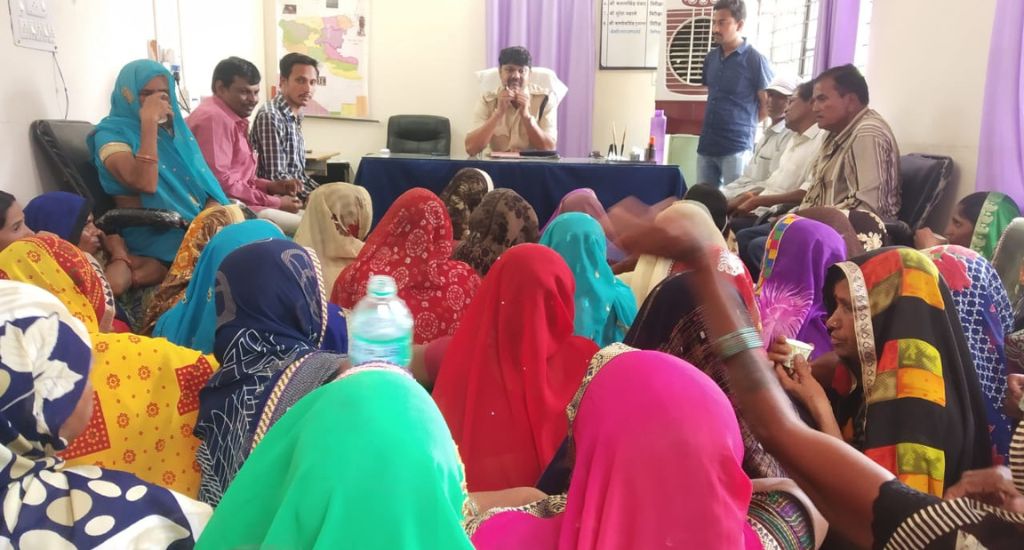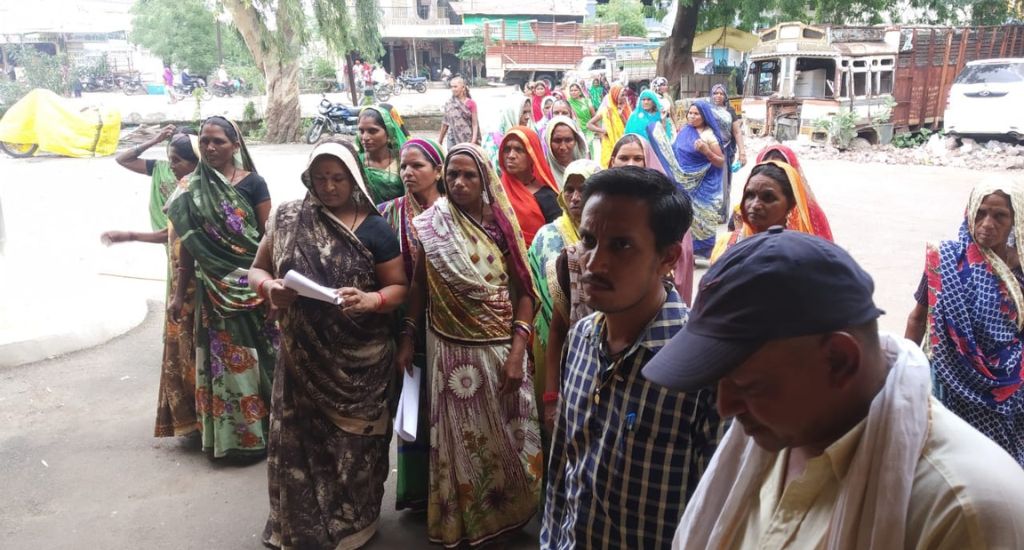About 16 km from the block headquarters at Rajpur, in the predominantly tribal belt of Barwani, lies Indrapur. The village, primarily of adivasi farmers, has around 7,000 residents spread across 15 to 16 hamlets. The infrastructure in the village is threadbare, poverty is rampant, and the literacy levels, especially among women, are low.
Though a paved road leads into the village, public transport is rather scarce, thus forcing villagers to walk miles at a stretch. But these were never issues that the villagers complained about.
We may not have achieved permanent prohibition, but we proved what women can do as a united force. I haven’t given up. The fight continues.

What really whipped up a storm was the rampant, illegal sale of alcohol. Nearly 30 households, operating small-scale businesses from their homes, were involved in selling liquor.
The availability of locally brewed hooch at just Rs 10 per glass made it much more accessible and affordable than legally sold alcohol, which had to be procured from far-off towns.
This led to a strong underground liquor economy in the village. While not everyone was involved in its production, many were either brewing it at home or purchasing it in bulk and selling it illegally.
Uprising against alcohol
In 2021, things began to change. Under the Sachet project by Transform Rural India, Anand didi, a local woman leader, was trained as a Badalav didi (changemaker) for Panchayat affairs. She began facilitating discussions among women in Self Help Groups (SHGs).
During one such meeting, the issue of domestic violence and alcohol abuse came up. Recognising its seriousness, Anand didi initiated a conversation about addressing the root cause—liquor availability. Around 60 SHG members joined hands to pass a resolution within their village organisation and submit an application to the Gram Sabha, demanding a ban on alcohol in the village.
However, their proposal met strong resistance. Male members who drank, as well as those whose families sold alcohol, pushed back aggressively. Anand didi and the women were heckled and verbally abused, but they did not back down.
They collected funds among themselves and approached the Rajpur police station, where they were respectfully heard. The police accompanied them to the village, and their presence created fear among the illegal liquor vendors.
Several shops were shut down. For the next two months, a vigilant group of SHG women acted as a kind of human surveillance team. They watched over the community like CCTV cameras, tracking any attempts to restart alcohol sales.

During this period, domestic violence cases dropped noticeably. Women and children could sleep without fear. However, such a change wasn’t welcomed by all. Some men began accusing their wives of having caused the ban.
In some cases, physical abuse resumed, not because of drinking, but because of the ban itself. Reeling under pressure, the unity of the women began to break down. As the movement lost momentum, alcohol vendors reopened their shops.
Victory despite the loss
Anand didi recalls that the ban, even though short-lived, made a lasting impact. “We may not have achieved permanent prohibition, but we proved what women can do as a united force. I haven’t given up. The fight continues,” she says.
Kalu Bai, a 34-year-old farm labourer and mother of two, endured years of domestic abuse because of her husband’s drinking. “It started just after we got married in 2013…he would get drunk every night and beat me brutally for no reason,” she says.
She earns Rs 4,000 a month and her husband’s income is roughly the same, except that most of his earnings went to alcohol. The ban brought a rare calm to her household. “For those two months, he didn’t drink. There was peace. My children could sleep without fear,” says Kalu bai.
Anita Bai, 29, a mother of three, lives in a joint family. She has been facing similar issues since her marriage in 2018. “When I saw other women standing up, I realised I wasn’t alone. I knew we had to act,” she says. During the ban, she noticed a visible difference at home. “Even a little peace goes a long way,” she adds.
Ramesh Singh, a 38-year-old farm labourer, admits he was one of the regular drinkers. “When the police came and the shops shut down, I was scared. But I also felt better. I realised I was wasting money. I’ve started helping my wife now. I don’t want to go back to that life,” he confesses.
From alcohol to water…
The vigilant team of women, initially formed to monitor alcohol sales, proved instrumental in tracking community issues. They were empowered, alert, and proactive. Water was another major problem in Indrapur. Women often had to walk long distances to fetch water.
Under Anand didi’s leadership, SHG women raised the issue in the Gram Sabha and submitted applications to the Public Health Engineering Department.

A borewell was approved, but it turned out to be dry. Later, the Janpad Panchayat provided a water tank, but it could only supply water for two hours a day. Eventually, after persistent lobbying and several more applications, a water project worth Rs 2.66 crore was sanctioned. Today, a new water tank stands in Indrapur, and families finally have access to clean drinking water.
The case of Indrapur shows the power of grassroots women leaders like Anand didi. Her efforts have inspired not just her community but neighbouring ones too, even though the movement didn’t bring immediate, permanent change.
Radhika M Joshi is a development practitioner with a strong background in rural livelihoods, gender, and grassroots leadership development. Currently, she is working with Transform Rural India (TRI) in Rajpur Block, Barwani.
The lead image on top shows women leaders from Indrapur village submitting applications to the district administration for prohibiting liquor sale in their village. (Photo courtesy: Ritesh Rathod)








